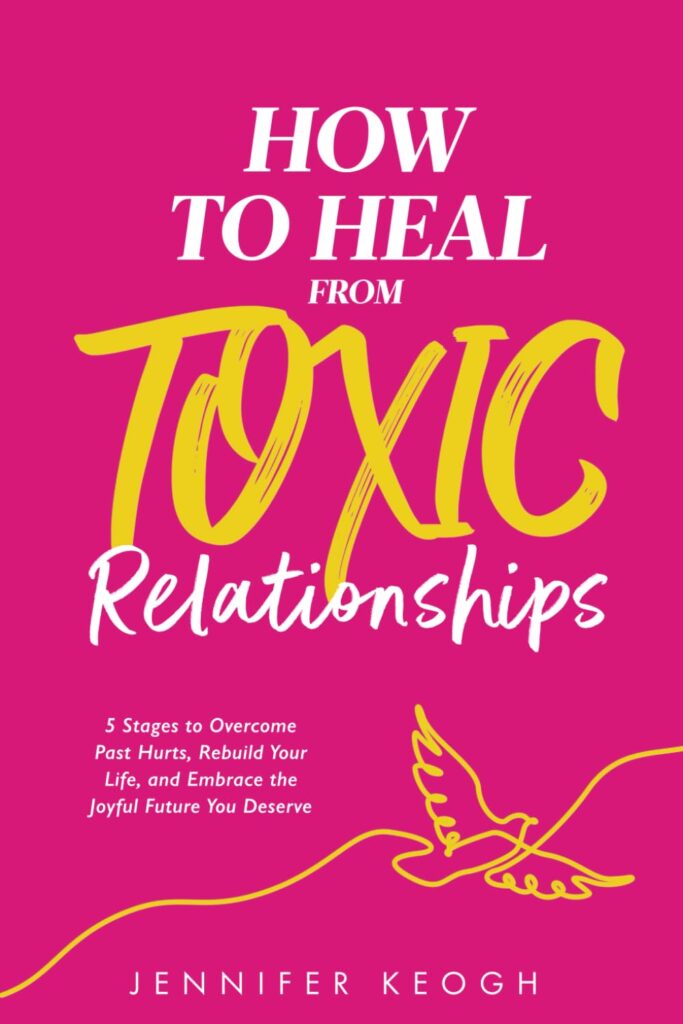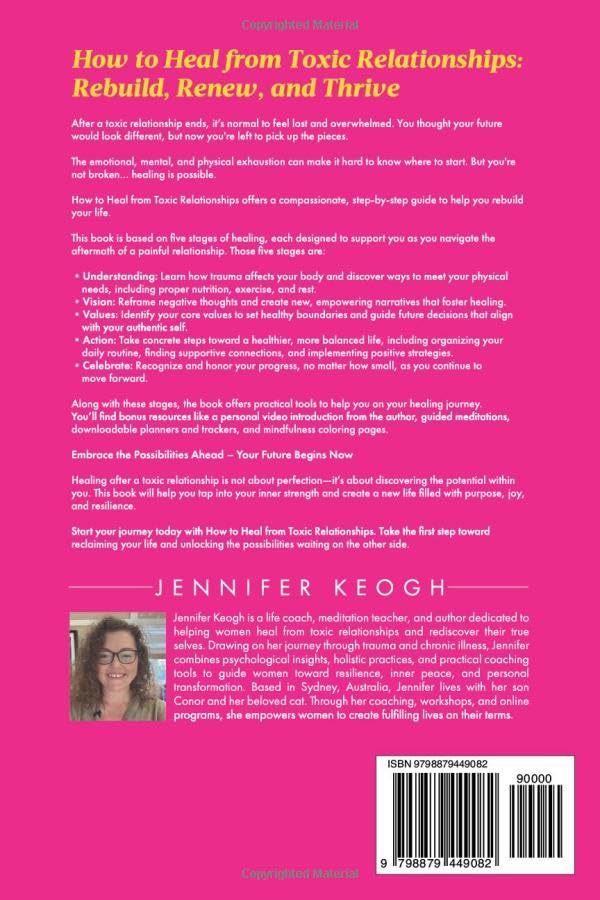When you’ve experienced emotional abuse, the journey toward healing can feel like an uphill battle. The trauma of emotional abuse leaves deep scars, often affecting your sense of self-worth. It’s normal to feel lost, overwhelmed, or unsure of where to start. But rebuilding your self-worth is not only possible, it’s essential for your recovery.
Self-worth is the foundation of emotional health. It impacts how you view yourself, how you interact with others, and how you approach life’s challenges. After emotional abuse, it’s easy to feel like your worth is shattered. But rest assured, you are not defined by what you’ve been through. You can rebuild your self-worth, piece by piece.
This article will guide you through the steps to reclaim your self-worth after emotional abuse. You’ll learn how to acknowledge your value, heal from the wounds of the past, and create a life that reflects your true worth.
Understanding the Impact of Emotional Abuse on Self-Worth
Emotional abuse can be subtle, making it difficult to recognize, especially in the early stages. It’s a form of control, manipulation, and psychological harm that leaves lasting scars. Unlike physical abuse, emotional abuse doesn’t leave visible marks, but its effects are deep and often long-lasting.
The abuser may use tactics such as belittling, gaslighting, or isolating you from others. Over time, these actions wear away at your confidence, self-esteem, and sense of self. The constant manipulation makes you doubt your reality, question your worth, and feel inadequate.
How Emotional Abuse Impacts Your Self-Worth
The effects of emotional abuse are far-reaching. It can change how you see yourself and the world around you. Over time, you may start to believe the negative things the abuser has said about you. “You’re not good enough,” “No one else will love you,” and “You’re just too sensitive” – these words become internalized, affecting how you view your value.
Some common signs that emotional abuse has damaged your self-worth include:
- Self-doubt: Questioning your abilities, decisions, or sense of reality.
- Fear of rejection: Constant worry about not being accepted or loved.
- Negative self-talk: Constantly putting yourself down or doubting your worth.
- Difficulty trusting yourself: Not being able to rely on your instincts or decisions.
Emotional abuse rewires your brain, making it difficult to recognize your own value. But recognizing this is the first step in taking your power back. If you’re struggling with the aftermath of emotional abuse, my book How to Heal from Toxic Relationships provides actionable steps to help you reclaim your worth. It’s a companion you can turn to whenever you need guidance.
The Roadmap to Rebuilding Your Self-Worth
Step 1: Recognize Your Value
The first step in rebuilding your self-worth is acknowledging that you still have inherent value. No matter what you’ve been through, your worth is not tied to the abuse. It’s not tied to anyone else’s actions or opinions.
Recognizing your value means rejecting the lies that were imposed on you by the abuser. It’s about reclaiming the truth: you are enough, just as you are.
Start by practicing self-compassion. Be kind to yourself and treat yourself the way you would treat a dear friend who’s going through a tough time. Affirmations can also be a powerful tool in this process.
Try saying, “I am worthy of love and respect,” “I am strong,” and “I am enough.” Repeating these statements every day will help rewire your brain and remind you of your worth.
Step 2: Reframe Negative Self-Talk
One of the most damaging aspects of emotional abuse is the way it distorts your inner dialogue. The negative messages from the abuser become ingrained in your mind. Over time, you start to believe that you’re weak, unlovable, or incapable.
Reframing your negative self-talk is a crucial step in healing. It’s not about pretending to be perfect, but about replacing self-doubt with self-empowerment.
Whenever a negative thought arises, challenge it. Ask yourself:
- “Is this thought based on facts or feelings?”
- “Would I say this to a friend?”
- “What would I tell my loved one if they were in my shoes?”
Write down these thoughts and reframe them. For example, if you think, “I’m not good enough,” replace it with “I am worthy of love and respect.” Over time, this practice will strengthen your self-belief.
Step 3: Set Boundaries and Practice Self-Care
Setting healthy boundaries is a powerful act of self-love. After emotional abuse, you may feel like your boundaries were constantly violated, and that can make it hard to know where to draw the line. However, reclaiming your self-worth means learning to set boundaries that protect your emotional, mental, and physical health.
Boundaries aren’t just about saying “no” to others. They’re about saying “yes” to yourself. Start by identifying your needs and expressing them clearly. Whether it’s needing space, time to recharge, or support from loved ones, prioritize your well-being.
Self-care is another vital aspect of rebuilding your self-worth. Emotional abuse often leaves you feeling drained, both physically and emotionally. To heal, you must nourish your body, mind, and soul.
Some self-care practices to consider:
- Exercise: Physical activity can release endorphins and improve your mood.
- Nutrition: Eating healthy foods nourishes both your body and mind.
- Rest: Don’t underestimate the power of a good night’s sleep.
- Meditation: Practices like mindfulness or meditation can help calm your mind and center your thoughts.
Take time every day to invest in yourself and your healing.
The techniques I discuss in How to Heal from Toxic Relationships can further help you break free from this negative self-talk and begin to see yourself in a new light.
Cultivating a New Narrative: Empowerment Through Healing
Shifting Your Focus
Healing from emotional abuse is about shifting your focus from what was taken from you to what you can build. It’s about letting go of the past and embracing your power to create the life you want.
Start by focusing on your strengths. What are you good at? What do you enjoy? Rediscovering your passions and talents can help you feel more confident in yourself. You might even try something new—whether it’s a hobby, a sport, or a creative outlet.
Every time you achieve something, no matter how small, take a moment to celebrate. These victories add up, helping you build a new narrative for yourself—a narrative that is not defined by abuse, but by your resilience.
Discovering Your Core Values
Rebuilding your self-worth also means reconnecting with your core values. What matters most to you? What principles guide your decisions? Discovering these values helps you set boundaries, make better choices, and align with your authentic self.
Your values are the compass that will guide you through life after emotional abuse. They will help you make decisions that honor who you truly are, rather than what others want you to be.
In my book, How to Heal from Toxic Relationships, I outline a specific process for identifying and living by your core values. This step is essential for creating the life you deserve.
Empowerment Through Action
Healing is not a passive process—it requires action. Start taking small steps toward the life you want. These steps can be as simple as organizing your space, reaching out to friends, or setting a goal. Every positive action is a step toward reclaiming your self-worth.
Take control of your healing journey by creating a plan. Write down your goals, whether they’re emotional, physical, or mental. Break them down into smaller, manageable steps, and take action daily. The more you act in alignment with your values, the more empowered you will feel.
The Importance of Support Systems and Community
Surrounding Yourself with Positivity
Healing from emotional abuse is not a journey you have to take alone. It’s important to surround yourself with people who uplift and support you. Seek out friends, family, or even online communities who understand what you’re going through and encourage your growth.
Positive relationships can help rebuild your self-worth. They remind you that you are worthy of love and respect, and they can offer a safe space for you to express your feelings without judgment.
Seeking Professional Help
There is no shame in seeking professional help when healing from emotional abuse. Therapy or coaching can provide invaluable guidance and support. A therapist can help you process the trauma, develop healthy coping strategies, and rebuild your self-worth.
In my own journey, I found that having the support of a coach or counselor was crucial in my healing. Having someone to talk to, who could offer an unbiased perspective, made all the difference in helping me reclaim my self-worth.
Celebrate Your Progress – No Matter How Small
Tracking Progress
Healing from emotional abuse is a gradual process. It’s easy to become frustrated when progress feels slow. But even small victories are worth celebrating. Every step you take toward rebuilding your self-worth is an accomplishment.
Track your progress in a journal or planner. Writing down your feelings, accomplishments, and challenges will help you see how far you’ve come. Celebrate these wins, no matter how small they may seem.
Celebrate Milestones
Acknowledge the milestones in your healing journey. Whether it’s setting a boundary, saying no to something that doesn’t serve you, or practicing self-care for the first time in weeks, these milestones are markers of your growth.
When you celebrate your progress, you reinforce your worth and build confidence in your ability to heal.
Conclusion: Embrace Your Journey and Unlock Your Future
Rebuilding your self-worth after emotional abuse is not an easy journey, but it is a necessary one. It requires self-compassion, patience, and action. But through every step, you will discover your true strength and resilience.
Remember, you are not defined by the abuse you’ve experienced. You are worthy of love, respect, and happiness. Your self-worth is not something that can be taken away. It is a part of who you are, and it’s yours to reclaim.
If you’re ready to take the next step in your healing journey, I encourage you to check out my book, How to Heal from Toxic Relationships. It offers a step-by-step guide to help you rebuild your life, and includes practical tools like planners, meditations, and exercises to support you every step of the way.
Take control of your healing journey today. Order your copy of How to Heal from Toxic Relationships and begin your transformation. It’s time to embrace the possibilities ahead. Your future starts now.
Your future is filled with possibilities, and it begins now. You’ve already taken the first step by seeking out this guide. Keep moving forward—you are worthy of all the love and happiness life has to offer.

